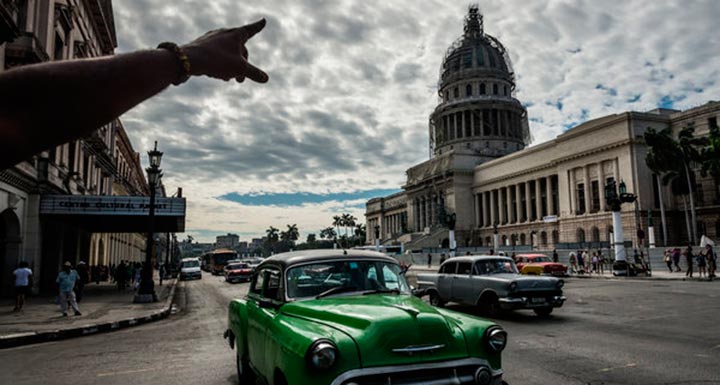
The latest on travel to Cuba
Following the publication of new regulations for travel to Cuba on Jan. 16, Americans may travel there more easily than at any time in the past half-century. Travelers cannot just hop on a plane and go, though. As Michael Sykes, founder of Cuba Cultural Travel, put it, while there is now less red tape, “the average Joe who wants to go to Cuba still has some hurdles to get over.”
Q. Can any American citizen visit Cuba now?
A. Yes, and no. Any American wishing to visit Cuba for one of 12 purposes may now do so without having to apply for a license on a case-by-case basis. Tourism is still banned by the embargo, so beach holidays are off the cards. The 12 categories of legal travel to Cuba include visits to close relatives, academic programs for which students receive credits, professional research, journalistic or religious activities, and participation in public performances or sports competitions.
What has changed?
In the past, people wishing to visit Cuba under some of the 12 categories had to apply for a license. The process was daunting to many and could take months. Under the new regulations, travelers will have to mark a box to denote the purpose of their trip and are required to keep receipts of their travel transactions for five years after they return. In most cases, they are also expected to have a full-time schedule of activities related to their category of travel.
What are people-to-people trips?
People-to-people trips are educational programs that fall into one of the 12 categories of general-license travel. They’re one of the most popular ways to go to Cuba because anybody can join a trip and your itinerary is worked out for you. Because they are organized trips with full schedules of meetings, lectures and visits to artists’ studios or small businesses or community projects, they are not cheap – about $2,500 to $4,000 per week including accommodation and flights.
Who will keep track of what I do in Cuba?
Good question. Until now authorized travel agents who book visitors’ flights and hotels were required to hold a special license from the Treasury Department and expected to make sure that their travelers complied with Treasury requirements. That is no longer the case and many travel experts are wondering whether the Obama administration is going to monitor people’s travel itineraries. However, if you sign an affidavit saying you are going to Cuba for a particular purpose and in fact spend a week at the beach, you would be breaking the law.
How do I buy a ticket?
Currently, flights to Cuba have been run by licensed charter operations. Most people fly to Miami and connect to a flight there, though there is talk of reopening a direct flight from New York. Under the new regulations, any commercial airline can operate flights to Cuba, and American Airlines, Delta Air Lines and United Airlines are among those that have expressed interest. However, airlines have warned that it could take a year or more to negotiate air service agreements between the countries’ aviation authorities. Of course, non-American commercial airlines fly to Cuba from many destinations. Americans who meet Treasury requirements can fly through a third country, such as Mexico, Panama, Grand Cayman or Canada — an option that may even work out to be less expensive than taking charter flights.
Where would I stay?
Cuba has a shortage of high-end hotels, and that will become more acute if the number of American visitors rises significantly. About 100,000 visits were made last year by Americans, and an estimated 400,000 by Cubans and Cuban-Americans visiting family on the island. Some tour operators are already block-booking rooms through 2016.
There are about 61,000 hotel rooms in Cuba, according to the tourism ministry, of which 65 percent are in the four- and five-star category. Eddie Lubbers, chief executive of the Havana-based Cuba Travel Network, which handled 74,000 visitors to Cuba last year, said he thinks that about 15 to 20 percent of hotel rooms are out of commission at any one time because they need maintenance. He estimated that about 125,000 to 150,000 rooms need to be added over the next few years to meet demand. Work has begun on the Manzana de Gomez, a 250-room property on Parque Central in Old Havana, which already boasts some of the best hotels.
Bed-and-breakfasts are an attractive alternative to hotels as they include the chance to make contact with Cuban families and often provide good meals. There are hundreds of bed-and-breakfasts, known as casas particulares, in Havana and popular tourist towns like Trinidad, Viñales and Cienfuegos. Searching for casas on the Internet is not an easy experience, but you can book them through travel agents like Cubania Travel or look on TripAdvisor.
Can I use credit cards?
Under the new regulations, American travelers to Cuba will be able to pay for expenses with an American credit card. It is not clear how long it will take for banks to begin offering the service, however. In addition, there are few ATMs in Cuba, and many establishments do not have the means to process credit card payments, so cash will be king for some time to come. It may be a good idea to take pounds and euros, which get a better exchange rate in Cuba than the United States dollar.
What can American citizens bring back?
Americans can now bring back up to $400 worth of souvenirs, including $100 worth of cigars. If you have ever bought good Cuban cigars, though, you’ll know that $100 will not fill your humidor.
(From: The New York Times)

